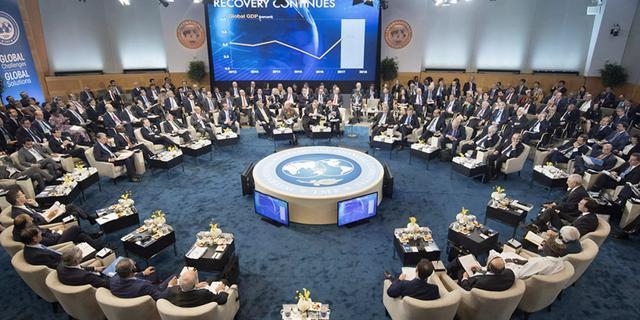Faridah N Kulumba
Africa-Press – Uganda. In mid-June this year, the International Monetary Fund (IMF) approved the immediate disbursement of USD 120 million (Shs440 billion) to Uganda under its Extended Credit Facility (ECF).
The IMF approval brought the aggregate disbursement to Uganda under the ECF arrangement to about USD 750 million.
The aim
The disbursement aims to provide immediate support to Uganda’s response to the Covid-19 pandemic and promote inclusive long-term growth led by the private sector according to an IMF statement issued.
The IMF’s decision comes after the executive board approved the ECF arrangement of about USD1 billion (200 percent of quota) for Uganda on June 28, 2021.
According to Kenji Okamura, the Deputy Managing Director and Acting Chair of the IMF, the government of Uganda is committed to the economic program despite facing challenging circumstances.
Okamura noted that most of the quantitative targets were met by December 2022 and March 2023. While the Quantitative Performance Criterion (QPC) on the Bank of Uganda’s net credit to the government was narrowly missed in March 2023, all structural benchmarks due between March and June 2023 were successfully achieved.
The full implementation of the Domestic Revenue Mobilization Strategy (DRMS), including the additional tax administrative measures identified by the authorities, is crucial to help maintain the debt-to-GDP ratio on a declining path and allow for an increase in social spending over the medium term. Increasing the pace of Public Financial Management (PFM) reforms is essential to enhance the capacity to execute social spending in a timely manner.
Uganda’s challenges
The IMF authorities highlighted concerns regarding the deteriorating asset quality of some Ugandan banks, underscoring the need to safeguard financial stability and strengthen the supervisory framework. While acknowledging the appropriateness of the current monetary policy stance, he advised the Bank of Uganda to remain vigilant and ready to tighten policy if disinflation progresses slower than expected.
Uganda should emphasize the importance of maintaining exchange rate flexibility to preserve external buffers.
Economic policies adjustments
As part of the disbursement package, Uganda is expected to undertake structural reforms that focus on strengthening governance and anti-corruption frameworks, enhancing domestic revenue mobilization (including reducing tax expenditures), and promoting financial inclusion.
However, towards the end of last year, the research conducted by the Official Monetary and Financial Institutions Forum (OMFIF) and Absa Bank Africa Financial Markets Index (2022) showed that Uganda runs an economy with the most developed financial sector in the East African region.
According to the sixth edition of the Absa Africa Financial index, Uganda has made significant improvement in five key areas including access to the foreign exchange market, transparency in taxation and regulatory regime, the capacity of local investors, the state of the macroeconomic environment, and transparency in the enforcement of legal contracts compared to neighboring countries Kenya, Rwanda, Tanzania and Democratic Republic of Congo (DRC).
Some financial analysts say that foreign aid has contributed to corruption in Uganda through the large amounts of money and resources that are sent over. Foreign donors attempt to liberalize the Ugandan economy to try and put a stop to corruption.
The World Bank and International Monetary Fund provide assistance to Uganda through Structural adjustment programs. These programs encouraged Uganda to decentralize and privatize.
The 2022 United States study conducted by the Fragile State Index (FSI) listed Uganda among the countries whose stability is considered fragile. And the third East African country to be on the top list.
According to FSI, there are several factors that are attributed to a fragile state whose central governments are so weak or ineffective that it has little practical control over much territory, non-provision of public services, widespread corruption and criminality, refugees, involuntary movement of populations, and sharp economic decline.
IMF-Uganda agreement
In December 2022, the IMF staff and the Uganda authorities reached a staff-level agreement on economic policies to conclude the combined second and third reviews of the 36-month ECF-financed program. The agreement gives Uganda access to Special Drawing Rights (SDR) 180.5 million, about USD 240 million.
The authorities continue implementing their reform program with key policy actions focusing on prudent fiscal and monetary policies, growth- and debt-friendly composition of spending and financing, safeguarding a resilient financial sector, and anti-corruption measures. These reforms are helping offset challenges from the unfavorable external environment and are improving prospects.
A staff team from the International Monetary Fund (IMF) led by Mr. Malhar Nabar conducted a virtual mission to Uganda from October 31 – November 22, 2022, to discuss progress on reforms and the authorities’ policy priorities in the context of the combined second and third reviews under the Extended Credit Facility (ECF) approved by the IMF Executive Board on June 28, 2021, for a total amount of SDR 722 million (about USD 1 billion at the time of program approval). The concluding meeting of the mission was held on December 19, 2022.
The IMF’s Extended Credit Facility (ECF) provides financial assistance to countries facing protracted balance of payments difficulties, with the aim of restoring macroeconomic stability and reducing poverty through strong growth. The ECF carries a zero-interest rate, with a grace period of 51⁄2 years, and a final maturity of 10 years.
For More News And Analysis About Uganda Follow Africa-Press






